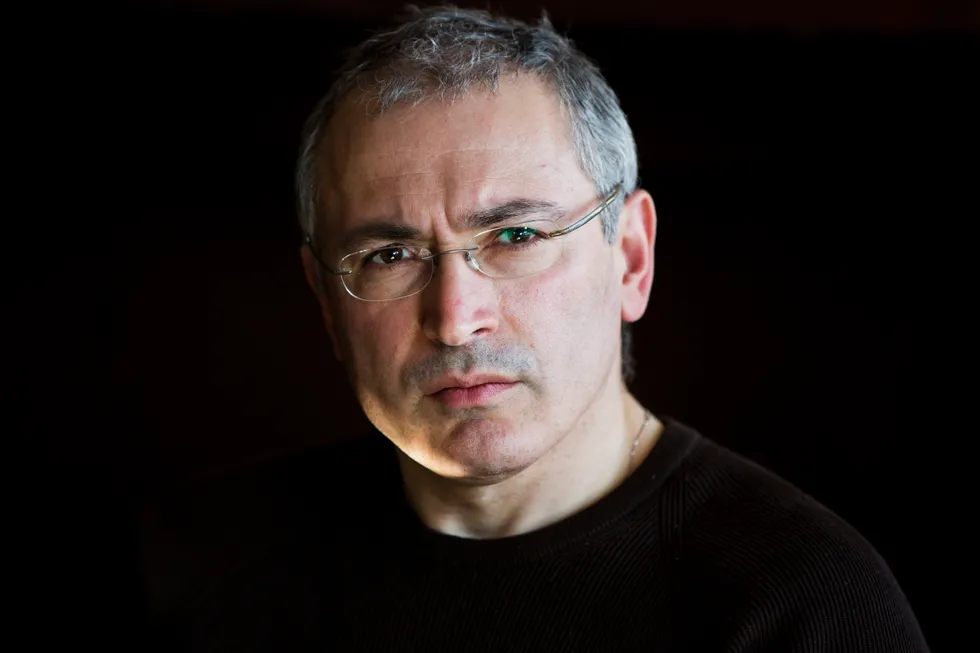Mikhail Khodorkovsky: A smart British visa policy could exploit the Russian brain drain and weaken Putin

Despite anti-Ukrainian, anti-western propaganda, many Russians don’t wish to risk their lives to commit war crimes.
Britain has been among Ukraine’s staunchest supporters since Vladimir Putin’s invasion. Whatever polling says about recent British prime ministers, their rating in Ukraine would be far higher. It now falls on Rishi Sunak to maintain and strengthen Britain’s leadership role supporting Ukraine’s existential fight on the frontline between freedom and tyranny.
As a grateful guest in this country, awaiting the day I can return to Russia, I won’t tell the government what to do. But as someone who rose to the top of Russia’s energy industry before spending 10 years in its jails on politically motivated charges, followed by exile, I may have helpful insights regarding Putin, Russia and the region he criminally regards as his imperial fiefdom.
Sunak faces complex, interrelated challenges. The war in Ukraine, he declared outside 10 Downing Street, “must be seen successfully to its conclusions”. I agree. And we must be clear what constitutes success. Putin’s invaders must be defeated and the sovereignty and territorial integrity of a democratic European state preserved. Any conclusion allowing a dictator to redraw maps by force is not a success.
The PM’s first international call was to President Volodymyr Zelenskiy. I’m hopeful that, like his predecessors, he recognises that if Putin is not defeated in Ukraine he will not stop there, and the long-term pain to the British and global economy, and security, will be far greater.
Putin has no war aims enabling a rational deal acceptable to democratic states or values. There are no grounds for an accommodation in the mutual interests of Britain and the west because, declared or not, he is at war not only with Ukraine but with you. Ungrateful, given the years the west indulged his kleptocracy, but true.
He is driven by a desire to protect the wealth and power he and his cronies have stolen from the Russian people, combined with hubristic, fascistic imperial fantasies that belong in a bygone age. His crimes against humanity continue. Russian missiles and Iranian-made drones terrorise Ukrainian civilians and infrastructure. He uses his own people as cannon fodder and dehumanises his victims. If British history teaches anything, it is that deals with such regimes are not worth the piece of paper you return with.
But Putin is losing, his thugs who first invaded humiliated by Ukraine’s better motivated forces. Now he’s conscripting hundreds of thousands more Russian men. Despite the force-fed diet of anti-Ukrainian, anti-western propaganda, many don’t wish to leave their families and risk their lives to commit war crimes. Domestic anger will grow, weakening the regime.
Now is not the time to cave to his bluster but to press home the advantage. As my friend Garry Kasparov says: Putin plays poker, not chess. What steps can Britain take to call his bluff?
First and foremost, Ukraine urgently needs more military aid. Britain has led Europe in providing timely and necessary military training and hardware. I hope that continues. Ukraine needs more weapons to take out distant command and logistical centres, and to combat the increased use of drones.
Britain has also set an example on sanctions, including to the US, consistently blocking the assets of Putin’s collaborators. This must continue. The effectiveness of new energy sanctions remains to be seen, but I am pessimistic about this tactic while energy dependence remains.
By far the most painful cost to the regime is the brain drain. The loss of 30,000 programmers and tens of thousands of entrepreneurs and engineers is the biggest blow to the Kremlin’s ability to maintain a technologically advanced war machine.
Ukraine is the first victim of Putin’s war, and its refugees a priority. There has also been an unprecedented exodus of Russians, fleeing in protest. Hundreds of thousands had already left before last month’s mobilisation. Russian intelligence reported that 260,000 left in the days after it. Within Russia, opponents of the regime risk their lives and freedom, such as Alexei Navalny, Vladimir Kara-Murza, Andrei Pivovarov and many more who remain imprisoned on spurious charges.
Those leaving include many of Russia’s most skilled and educated. Britain, and Europe, need a visa policy that incentivises and facilitates their rejection of Putin, while punishing the regime. Not only would such Russians contribute to the British and other economies, they would also be crucial to shaping a vision of Russia after Putin and his gang are gone.
Long term, democratic states need energy and industrial independence. Ukraine highlights the need to wean the economy off hydrocarbons. Sunak has stated support for wind and renewables – and nuclear power, rejecting historic mistakes made by other European countries. Energy should no longer be left at the mercy of tyrants but is not the only economic sphere susceptible to blackmail and as China rises, Putin is not the only dictator who can hold you to ransom. For long-term economic security, democratic states must regain self-sufficiency in producing key industrial goods.
Britain will have an important role to play in rallying support for the rebuilding of Ukraine, ensuring that Russia’s criminal regime is held to account and creating a supportive environment for a more stable Russia after Putin. Before that, however, Putin must be defeated in Ukraine. I hope that under Sunak’s leadership, Britain keeps up and intensifies its commitment towards that goal.
Mikhail Khodorkovsky, a former political prisoner, is the author of The Russia Conundrum: How the West Fell for Putin’s Power Gambit – and How to Fix It.
The article was first published in The Guardian



